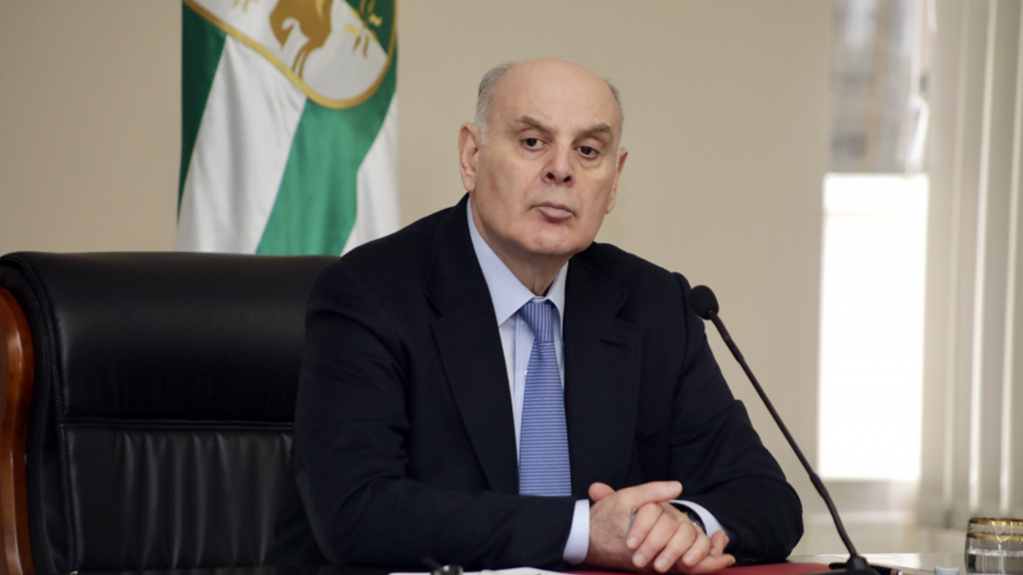“We all know full well that the salaries of the security forces and some state employees are financed by Russia, which is waging a very difficult war that costs $500 million per day, not to mention thousands of casualties. Suppose, at some stage, the Russian Federation can no longer provide us with financial support, what should we do in that case? There might come a time when law enforcement agencies will not be able to function normally because few people will agree to work for two thousand rubles (57 GEL).
News
I am not trying to scare anyone, but since we are an independent state, it should be full of economic content. The main vector of development is tourism.
That is why the building of hotels is good, but it should ramp up 30-40 times,” stated Aslan Bzhania, the de-facto president of Russian-occupied Abkhazia, on July 27, in Sokhumi, during a meeting with the representatives of the de-facto administration of the city.
Bzhania is convinced that Abkhazia has potential, but that does not mean that it is realized. The de-facto president of Abkhazia once again emphasized the necessity of approving the draft law “On Regulating the Legal Status of Apart-hotels and Apartments” in order to “increase the economic sovereignty of Abkhazia.”
According to him, after the adoption of this law, the construction of apart-hotels and apartments will become an important factor in strengthening the “economic sovereignty of Abkhazia” and will play a positive role in the implementation of such large projects as the reconstruction of the airport and “gasification of the country.”
“We have an independent state on our hands. The quality of work of state institutions should improve. It is very important that civil servants receive a sufficiently high salary and not look into the pockets of visitors. All this rests on the capabilities of our budget,” remarked Bzhania and added that the economic affairs should not be politicized.
The draft law prepared by the office of the de-facto president envisages the construction of apart-hotels over the entire territory of occupied Abkhazia in the next 10-12 years, totaling 30 thousand apartments. The de-facto government, in case of adopting the law, envisions:
- Creating a new residential area of over 2 million square meters, for which they intend to allocate 300 hectares of land;
- Attracting 160 billion rubles ($1.9 billion) in investments until 2025;
- Providing 32 billion rubles ($380 million) in salaries during construction;
- Inflow of 10 billion rubles ($119 million) in the budget as income tax;
- Creation of 13 thousand new jobs in the tourism business;
- Receiving an annual income of 2 billion rubles ($24 million) from apartment fees (1000 rubles ($12) per 1 square meter);
- With the construction of 30,000 apartments, the number of tourists to increase by 1.5 million, which gives hope for the initiation of the gasification program in the occupied region (the cost of the program is 59 billion rubles ($700 million).
The draft law “On Regulating the Legal Status of Apart-hotels and Apartments” is strongly criticized by public organizations and opposition representatives of Abkhazia.
“The adoption of this law will help disrupt the demographic balance in Abkhazia, start a new wave of assimilation, cause political tension, and over time, prepare the grounds for changing the independent status of Abkhazia,” this is how the Akhyatsa movement responded to the draft law and called on the so-called parliamentarians to refuse to consider it.
If the draft law is adopted, the de facto government will prohibit the purchase of apartments for those who participated in the 1992-93 military actions against the “Republic of Abkhazia.”
On July 26, the Parliament of the de-facto Republic of Abkhazia supported the ratification of the agreement signed between Moscow and Sukhumi, by which the Sukhumi Babushara Airport will be handed over to Russian companies for a period of 49 years. Russia is also requesting the transfer to the unique forests of Bichvinta, which the Abkhazians are opposing.















